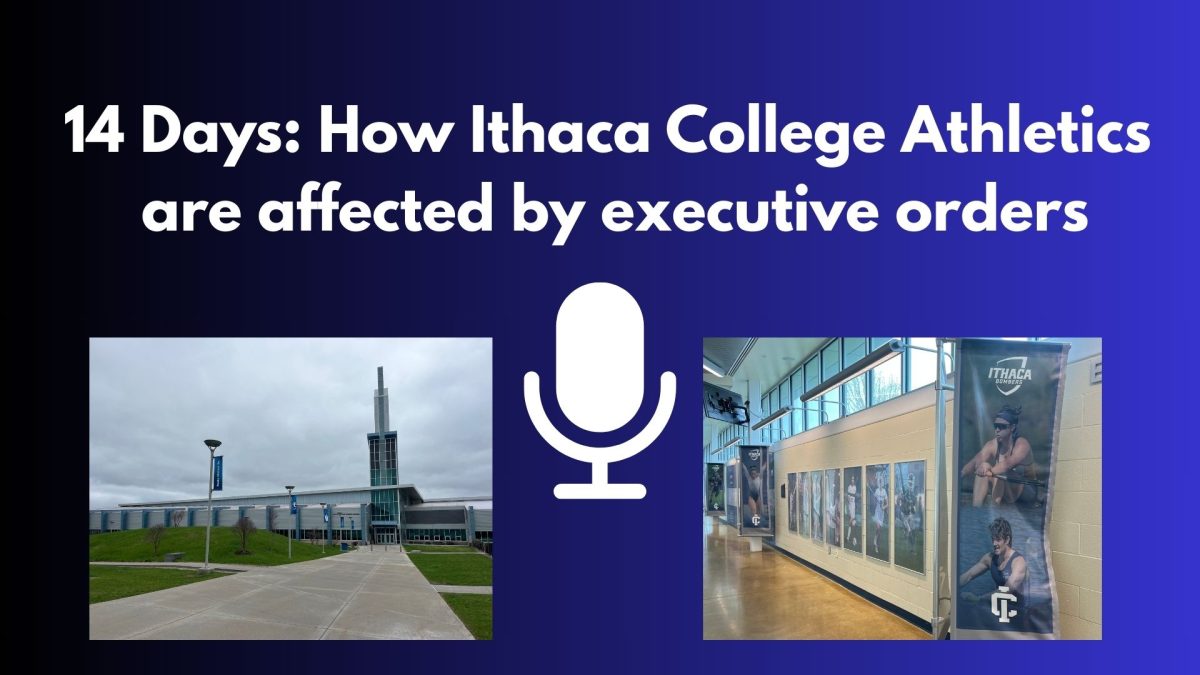
As a longtime bartender and bargoer, Ashley Cake is familiar with uncomfortable dynamics that can go along with a night out.
“As a woman, I have both witnessed and experienced a lot of inappropriate contact between me and random people in bars, and my friends have also been subject to both trivial and very serious assaults and harassments,” Cake explained.
So, she was determined to create a safe and enjoyable environment for everyone when, in October 2016, she opened The Watershed bar. The Watershed that year became the first bar in Ithaca to receive Barstander certification.
The Barstander intervention program is a three-hour training session for those working in nightlife on how to identify and intervene in potentially harmful situations. It focuses specifically on protecting women and preventing sexual violence.
“So many of us have accepted [inappropriate behavior] as part of nightlife, and hearing that it could be considered unacceptable by an establishment was very empowering,” said Cake.
Cake was not only inspired by her personal experiences, but also by a similar training program, funded by the NFL, for bartenders that focused on the similar aspects of creating a safer nightlife. That was when she reached out to Naomi Barry, the adult community educator at the Advocacy Center of Tompkins County, to try to implement something similar in Ithaca.

Barry had also worked for many years as a bartender in Ithaca. “I remember bartending and seeing potentially problematic, or very problematic things and not knowing if I was empowered to kick someone out or say something,” she recalled.
When Barry began working at the Advocacy Center she said that she realized bar staff could be part of the solution. When Cake approached her about launching the program, it was a natural partnership.
While Barstander was initially centered around bartenders, it has grown to include bouncers, DJs and other community members.
In October 2017, Ben Ortiz, a DJ and assistant curator for Cornell University’s Hip Hop Collection, along with a few other men in the Ithaca community, was tagged in his friend’s Facebook status that asked what he was going to do to keep women safe in Ithaca’s nightlife spaces.
Ortiz, also known as DJ haMEEN, organized a meeting of about 30 community members, including other DJs, bouncers, venue owners and bartenders to discuss what they could do. He said the biggest take-way from that gathering was learning about the existence of the Barstander training.

Since then, there have been three training sessions specifically for DJs in the community, to help them incorporate Barstander skills into their work.
“It’s essentially a primer to someone who’s just come to the realization or awakened to the fact that these are big issues taking place in nightlife situations, particularly here but certainly everywhere,” explained Ortiz.
Cake said that she initially expected the training to focus on confronting the perpetrator but that she actually learned how to approach and show support for a potential victim.
“You go to the potential victim, and you let the perpetrator know not only do you care about this person but that you are not going to let anything happen to them,” Cake said.
While he DJs, Ortiz has made it part of his routine to check in with the women in attendance.
“Periodically throughout the night, when I am DJing in specific spaces, getting on the mic and saying, ‘How are the ladies feelin’? If the ladies are alright everybody is alright,’” he said.
Barry also recently hosted a community Barstander training session for the Ithaca community. The community training helps highlight some of the potentially harmful behaviors that anyone can look out for. Some of these include invading body space, not respecting ‘no,’ or unwanted touching.
Barry said a main goal of the community program aims to normalize the “checking-in” behavior when you see someone looking uncomfortable. Checking in disturbs and highlights this inappropriate behavior.
“Community members are able to call out their friends who are engaging in this behavior which is very different than what a bartender can do,” said Barry.
Barry is working on scheduling another community training session within the next few months.












